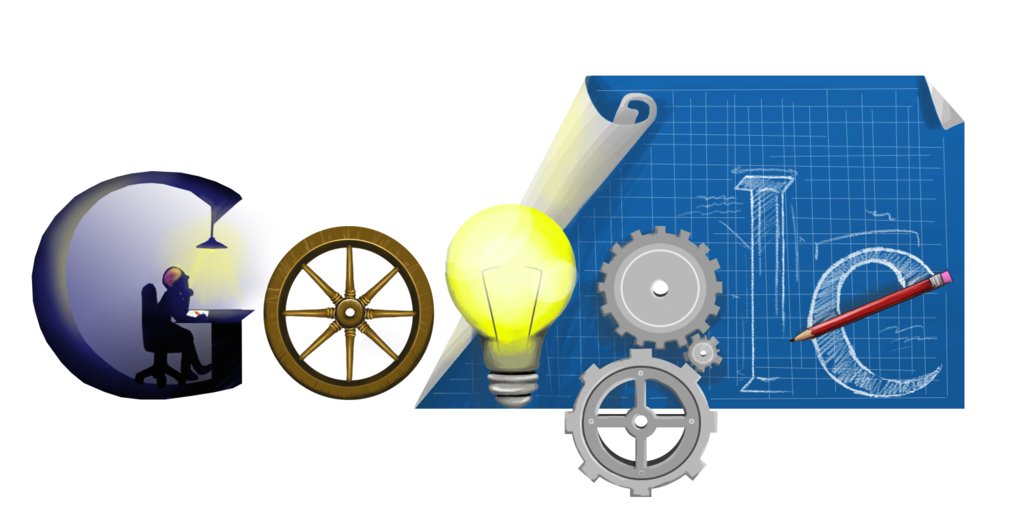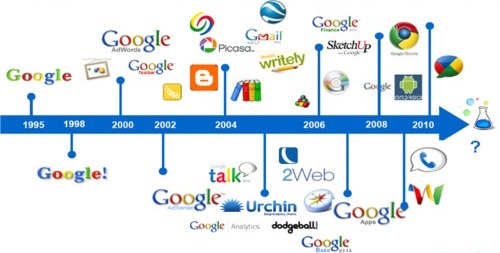Another opinion about the numerous closed projects of the 'corporation of good'.

Google has been making fantastic strides over the years. After the IPO was carried out by the company, its value on the stock exchange rose sharply. Over the past ten years, revenue and net profit indicators have grown significantly, and there is a long discussion about the impact of Google on the global economy and culture.
At the time Google went public, its business relied heavily on the search engine, which made a profit by displaying ads on users' PCs. Over time, the company has developed and acquired successful projects, including Gmail, YouTube and Android and, as a result, the user community is tightly hooked on electronics and Google. Over the years, the company's shares have been adding in value, this happened before my eyes and I believed that at each stage there was a certain overvaluation of the shares. I've been wrong all these years.
Even then, I did not notice many of the signs that predict a bright future for Google. One such clear sign was the company's ability to recruit the best young engineers over a decade. I have used the US News rankings as a reliable source of information on the rankings of higher education institutions. If you've been fortunate enough to have studied engineering and science at the top ten universities on this list over the past 10-15 years, then it's most likely that the brightest minds of your course subsequently got a job at Google.
In an interview with Harvard Business Review, Jeff Bezos (Amazon) described himself as a leader who is focused on achieving results over the long term. Bezos said that Amazon love to 'invent and create new things, and I know for sure that focusing on long-term projects is necessary to create innovation, because there will be many mistakes and failures along the way.' Although Bezos spoke in the context of his company, this statement perfectly describes the nature of Google's activities over the past 10 years. Compared to other big tech corporations, Google is far more active in trying out various crazy ideas that other players would find either too complicated or too expensive to implement.
There is a saying among great poker players that if you have never been caught bluffing, then you are not bluffing enough. To get the maximum payoff, the player must make moves that may calmly not lead to any result. By analogy, innovative companies need to do this by 'bluffing' and taking risks even when there is a good chance of being left with nothing. Truly innovative companies will experiment and often fail. Google's list of bugs is impressive.

In my attempts to carefully analyze and estimate the value of Google, each time I got a lower figure, in contrast to the estimates of analysts on Wall Street. Citi's analysis was more detailed than mine, but it did not include so-called fantastic Google projects. My opinion about such projects is fundamentally different. It is this kind of gamble that makes Google a great corporation. They are the end product of the company's unique and innovative corporate culture. It seems to me that the number of such failures will only increase as new generations of devices and services emerge over the next ten years. The next version of Google Glass, self-driving cars, or perhaps Google's research into biotechnology could ultimately be an incredible breakthrough and positively impact the company's bottom line. Google X's crazy ideas are exciting, and the project will attract many cutting-edge engineers and scientists under its wing.
As a company reaches the size of Google, it becomes increasingly difficult to come up with new products and services that can become engines of progress. And a sane person would certainly not believe that a long list of failures is an indicator of the process of creating innovation and the key to future success. Be that as it may, such large companies need to experiment and look for the next revolutionary product in order to increase their credibility and their value in the eyes of investors. I believe that Google will remain the undisputed leader of the technology revolution for a long time to come, thanks to its positive culture and the right approach to long-term growth. For this, the company needs innovation. In my opinion, it is the unwillingness to experiment in the style of Google that caused the current stagnation Microsoft.
Google is no longer a search engine. The company's innovations will be actively emerging and in ten years we may see Google become the most valuable company in the world. I believe that Google's history of multiple failures and the drive to try new things instead of focusing entirely on incremental improvements to existing technologies will prevent the corporation from falling into stagnation as it did Microsoft during the Ballmer era.
Original article
Elir: Omitting the financial calculations of the author, we got a fairly adequate opinion about the many failures of Google. Yes, the company admits mistakes, but not only learns, but also builds on the gained experience. Thus, we see that innovation does not go without trial and error. The main thing is not to delay the process.
